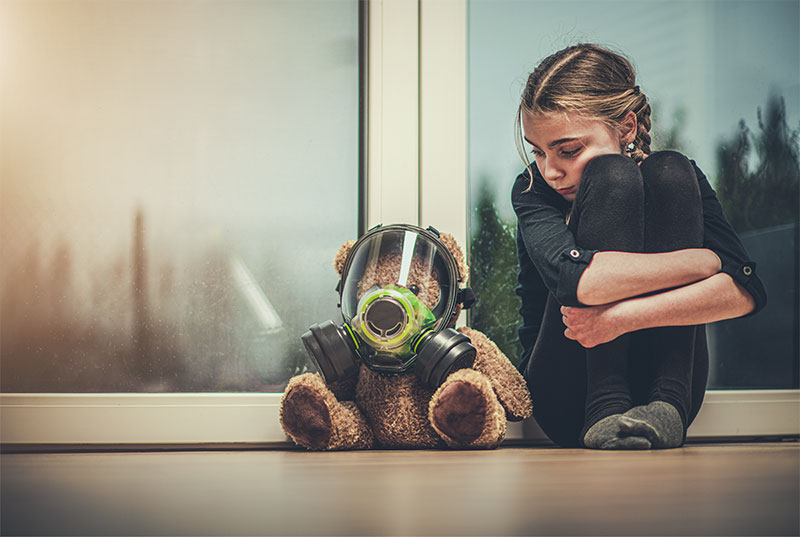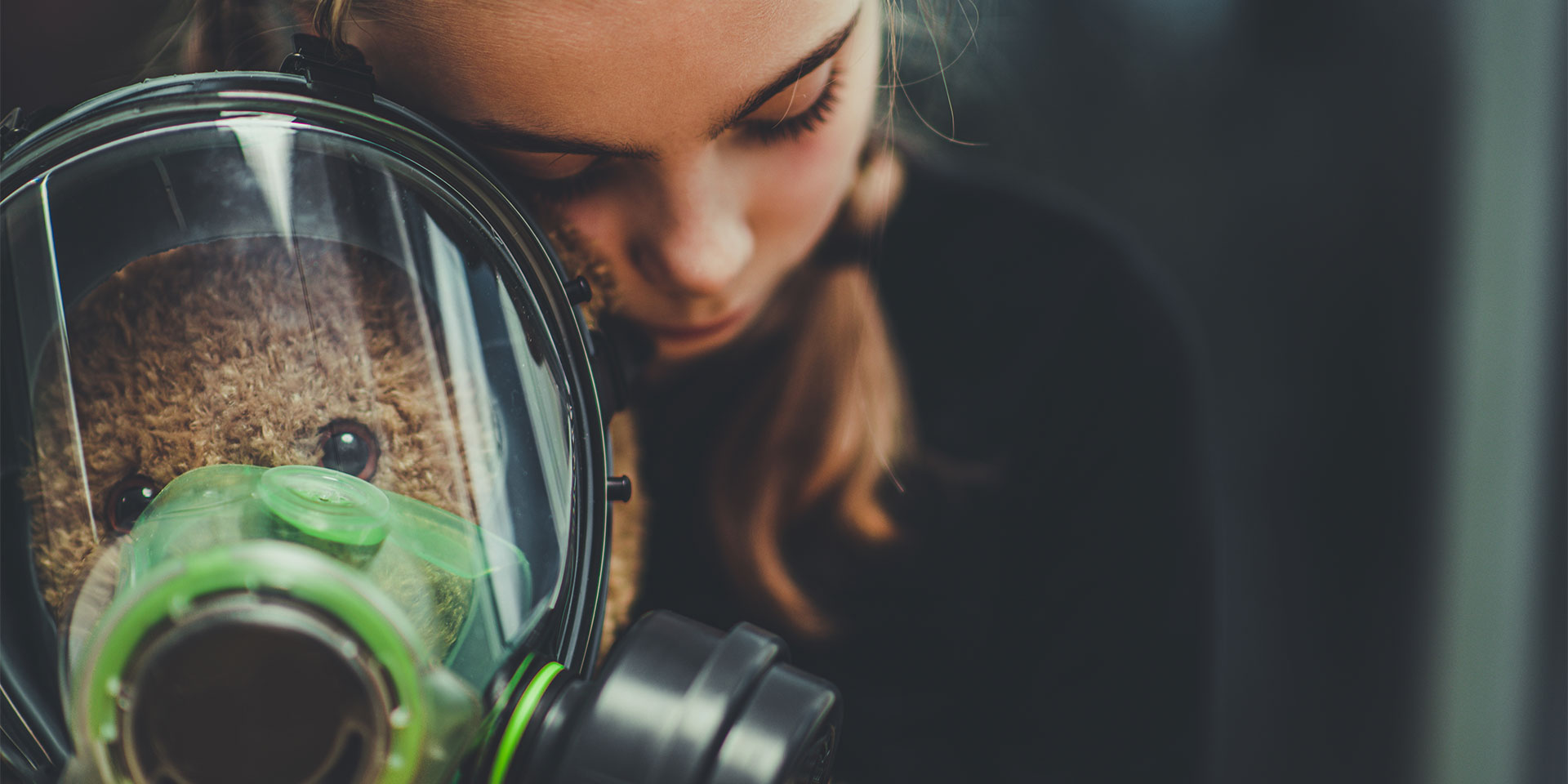These days we all need to hear good news—that life will soon return to normal and that we will be able to return to the troubles of yesterday, which now seem small to us. In the meantime, our lifestyle has seen changes that we could not have imagined just a few weeks ago.
In this atmosphere of expectation—punctuated by breaking news, experts’ statements and fake news—people think twice about sharing sad experiences and stories, whether theirs or others’.
Fragments from (un)told stories
As the information on the spread of COVID-19 is updated, we find ourselves increasingly hungry not only for reliable information and news about a possible antidote, but also for details from the stories of the “unlucky” ones.
Death has another face in the midst of this pandemic, far more hideous, writes Alberto Ceresoli in a local newspaper in Bergamo, talking about people who “die alone and are buried alone. They did not have anyone to hold their hand and the funerals had to be restricted, with an expeditious service officiated by the priest”.
Journalist Adela Mohanu, who lives in Lombardy, the most affected region of Italy, eventually wrote about the drama of her neighbours, after much hesitation. Even though people may not be happy reading about such tragedies, this is one of the thousands of stories now unfolding in Italy, writes the journalist. She tells of how the infection with coronavirus separated husband and wife, not only in life but also after death, because the wife could not even attend the funeral of the husband, since she herself was quarantined. “It must be awful to mourn without anyone being able to hold your hand,” Mohanu writes, explaining that she saw no flowers, no one holding vigils of solidarity in front of the neighbours’ door. In difficult times, sad stories require us not to forget about being human “to those who might have caught the virus. Let’s ask them about their health from time to time,” concludes the journalist.
The time of the changes that (do not) pass
We may not know too much about the stories of those who recovered or died after being infected with the virus, but we see from day to day how the reality around us changes, and our lifestyles along with it. Some changes may persist longer than we might now expect, writes Gaby Hinsliff, a journalist for The Guardian.
It seems that, with coronavirus, we are entering a new time of life, a kind of involuntary social experiment, which will reveal which daily habits can disappear in an instant, says the journalist. This is a time when “the shutters have come down all over Europe,” and life seems to be taking another course, one that may continue even after the virus is somehow defeated, Hinsliff argues.
Hinsliff looks at one of the scenarios that would have been inconceivable just a short time ago: Jenny Brown, principal of the City of London School for Girls, proposed that private schools drop the preparation for the General Certificate of Secondary Education (GCSEs). Although some teachers consider this an extreme measure, the intention is to help teens who are already struggling with anxiety to get involved in other projects, which would reduce the pressure they feel.
On the other hand, if the most pessimistic scenarios for the spread of the coronavirus do materialise, then perhaps Hinsliff is right when she says that “throwing thousands of children into exam rooms by the middle of the month may be pointless”. Maybe the exams will be postponed this year or even cancelled, as “it is possible to enter an era where things that seemed impossible become almost impossible to avoid.” And who knows whether, when things return to normal, the definition of normality will even be the same, the journalist points out, reviewing how past crises have altered reality long after they were over.

When everyday life takes a new turn
On the last day of last year, China warned WHO of several mysterious pneumonia cases in Wuhan, a city with 11 million inhabitants. No more than three months later, the new coronavirus has changed the geography of ordinary life as it has spread rapidly around the globe. Daily life has been even more severely altered as nine European states decreed a state of emergency in order to respond faster and more effectively to the crisis caused by the pandemic.
“We would like the country to realise that as a nation, we can’t be doing all the kinds of things we were doing a few months ago,” said Dr. Anthony Fauci, director of the US National Institute of Allergy and Infectious Diseases. He pointed out that the changes also include states that have not yet registered coronavirus cases. Americans should prepare for weeks of life at a different pace, said Thomas Bossert, President Trump’s former internal security advisor.
In the new context, responsibility has become the most important value, writes Italian journalist Ezio Mauro, stressing that the time has come when “we must give up part of our freedom in the name of responsibility. And even if politicians don’t say it yet, this is the real confirmation of the state of emergency.”
As the pandemic spreads across Europe, the consensus for severe, authoritarian measures is growing, writes Steven Erlanger, Europe’s chief diplomatic correspondent for The New York Times.
“The paradox of a virus that knows no borders is that the solution requires borders, and not just between countries,” says Nathalie Tocci, EU councillor. With schools closed, employees working from home or in danger of losing their jobs, empty streets and frozen social lives, the new way of living involves strict boundaries between people.
“Now, the ‘other’ is the person you’re afraid of. Everyone around you can carry the virus,” points out Ivan Krastev, director of the Centre for Liberal Strategies in Sofia, and a permanent fellow at the Institute of Human Sciences in Vienna. Suddenly, the world no longer seems such a safe place, so the decision to stay or leave is not easy at all. In fact, Krastev is not even sure if he should stay in Vienna or if he should take his family to Bulgaria, where the medical system is not so efficient but the virus has not spread that much—and, importantly, where most of his friends and family are.
Italy is the most striking case study of how ordinary life has changed after coronavirus, writes Tobias Jones of The Guardian. The city where Jones lives, Parma, has an apocalyptic feel, with police patrolling deserted streets, hospitals overcrowded with the ever-increasing influx of patients, people stuck in their houses, listening to news that makes the end-of-the-world impression even worse. Jones writes that the pandemic has suddenly transformed a once highly social nation into one obsessed with personal space. Even if you wanted to, you can’t go anywhere. Museums, shops (other than grocery stores), schools, libraries, and gyms are all closed. In some ways, “it feels like the Middle Ages,” Jones writes. You feel alone, heavy with worry for the fate of your loved ones, for what will be left behind after the pandemic.
On the other hand, the pandemic has opened our eyes to the things that the lure of life had eclipsed. People spend more time with their families, they interact with their loved ones, rearrange their priorities, rediscover the pure pleasure of playing with the children and the calm pace of house chores. People miss each other, they call one another over the phone, they sing from the balconies, appreciate the work and sacrifice of medical staff.
Jones confesses that until now he hadn’t known that one of his neighbours plays the guitar. Now he hears guitar chords until late at night. Even nature looks different when you are locked up in the house with all the time in the world to admire it, even from a distance; the pigeons and the cherry blossoms seem more beautiful than in any other spring, says the journalist.
The light piercing through the shutters
While the crisis reveals selfishness and fear disguised in undesirable behaviours and attitudes, it also shines a light on altruism, solidarity and caring for others, inviting us to choose our values in a time of uncertainty and danger.
Perhaps many of us have realised that we in fact thirst for the relationships we have treated like Cinderellas for too long; that too often we have used the wrong meter to measure our prosperity and that we are already rich when we are together; that life is so precious, and that, although we work for the needs of the body, the soul should always take priority, even during an economic boom.
A time of crisis may be the perfect moment to dust off the Word that still radiates hope, and reignite the forgotten exercise of prayer. If God keeps a record of every hair on our heads and carries us on His shoulders since our birth, if His thoughts about us are “thoughts of peace and not of evil“, then He knows our troubles and has solutions, even in the most severe crisis. His future will see us through all the crises of the world, making its way to eternity.
Now is a time when we have to look at the world through prisoners’ eyes, from the windows of our cells, Tobias Jones concludes. But it could also be a time when we lift the blinds from our windows and look to the sky. It is there that the hope and the antidote for the most lethal of diseases man has ever faced are abundantly available. Always.
Carmen Lăiu is a writer for ST Network and Semnele timpului.



















